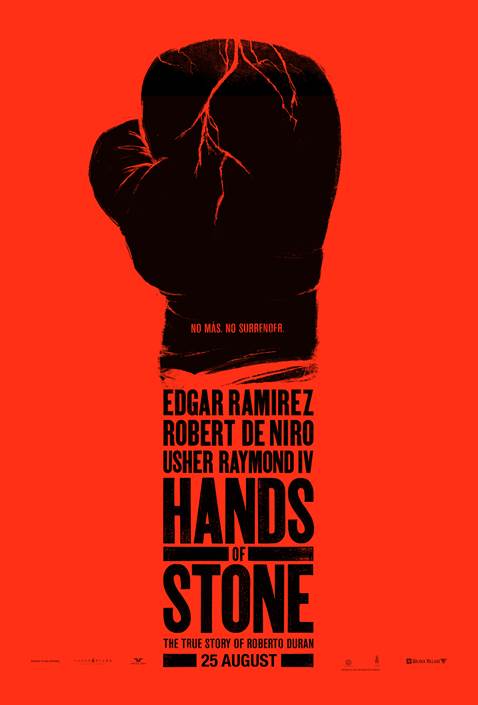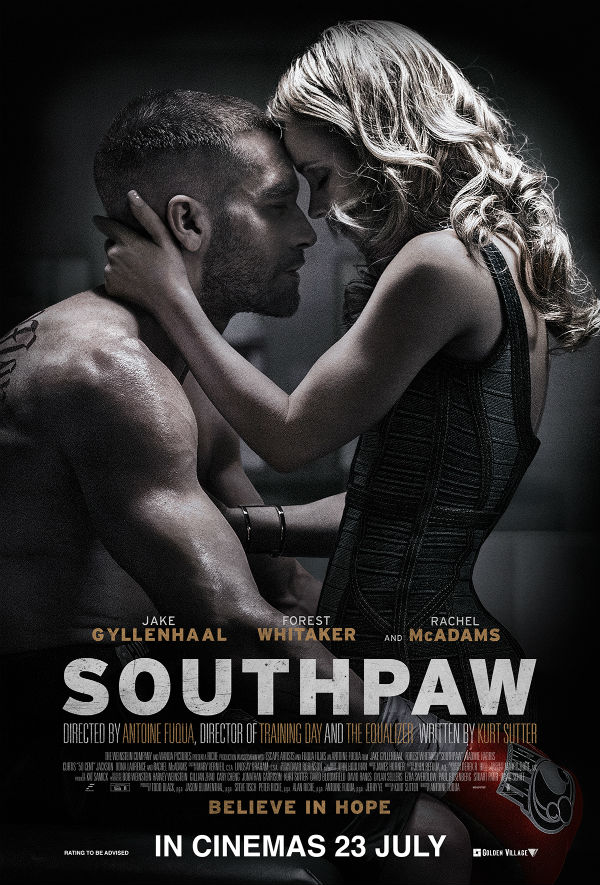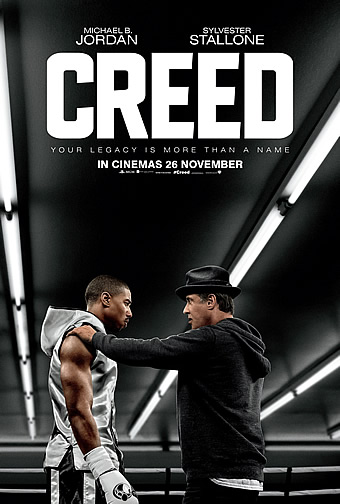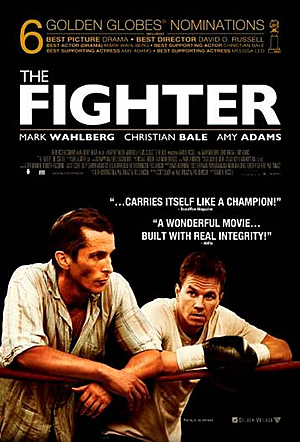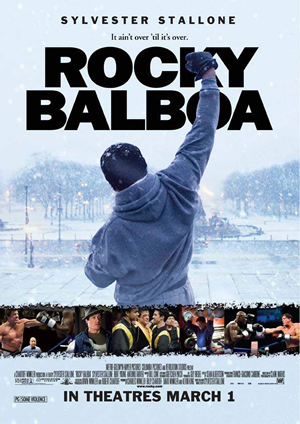HANDS OF STONE (2016)
Genre: Drama/Biography
Director: Jonathan Jakubowicz
Cast: Robert De Niro, Edgar Ramirez, Usher Raymond, Ana de Armas
Runtime: 1 hr 45 mins
Rating: R21 (Sexual Scenes and Some Coarse Language)
Released By: Golden Village Pictures
Official Website:
Opening Day: 25 August 2016
Synopsis: HANDS OF STONE follows the life of Roberto Duran (Edgar Ramirez), the Panamanian fighter who made his professional debut in 1968 as a 16 year‐old and retired in 2002 at the age of 50. In June 1980, he defeated Sugar Ray Leonard (Usher Raymond) to capture the WBC welterweight title, but shocked the boxing world by returning to his corner in their November rematch, famously saying the words “no mas” (no more).
Movie Review:
There is a great story at the heart of Panamanian boxing legend Roberto Duran’s personal and professional life, but writer-director Jonathan Jakubowicz (Secuestro Express)’s biopic does its prizefighter subject disservice by never quite making up its mind who it wants to be about. Indeed, as much as it begins with Duran as a slum kid from El Chorrillo with a scrappy gift for fighting and ends with him emerging from his personal doldrums to win the WBA junior middleweight title against the then-undefeated Davey Moore in 1983, ‘Hands of Stone’ – which gets its name from the boxer’s sobriquet – also at different points tries to be a movie about his aging trainer Ray Arcel (Robert De Niro) and his most memorable opponent in the ring ‘Sugar’ Ray Leonard (Usher Raymond).
To be sure, both of these supporting characters are interesting in their own right – the former in the span of his 50-year career having trained 18 world champions and having the honour of being the only boxing trainer to be in the Hall of Fame; and the latter a celebrated American icon of boxing who was undefeated save for the grueling 15-rounds he had with Duran in June 1980. But Ray’s troubles with the Mob (as depicted in a couple of scenes with the understated John Turturro) and with a drug-addicted estranged daughter (played by De Niro’s own daughter, Drena) he adopted with his first wife seems to be fighting for a fair share of the limelight with Duran’s life story. Ditto for Sugar Ray’s familial relationship before and during the two landmark fights with Duran – in particular, given how this story is narrated by De Niro’s Ray, why is it we get to see Sugar Ray having sex with his wife?
Nor does it seem that Jakubowicz is sure what he wants his movie to be, ultimately trying and failing to be both a character study about the brilliant but reckless boxing phenom as well as a portrait of Duran as a hero of his time for Latinos in general and especially Panamanians. Because it fails to truly get into Duran, it is difficult for us to truly empathise with the character’s ups and downs, most notably the period in between his two bouts with Sugar Ray where he began indulging in a life of excess and found himself exploited as a pawn by his chief financier Carlos Eleta (Ruben Blades) who agrees to the rematch behind Duran’s back for a jaw-dropping 10 million dollars. It also fails to portray with enough conviction how Duran became a symbol for his homeland amidst tensions between the United States and Panama over control of the Panama canal or how he subsequently fell out of favour by ‘giving up’ during his rematch.
Notwithstanding, what it does do well is in showing the life-changing relationship between Duran and Arcel – beginning with how the former overcomes his biases against ‘gringos’ to agree to train with Arcel, how the latter impresses and convinces the former to combine both strategy and technique in his game, the bond that builds between trainer and fighter during coaching, and the instrumental role that Arcel plays during each one of his fights literally and metaphorically grooming Duran in the right mental and physical state. Ramirez and De Niro, who were quarrelling former in-laws in ‘Joy’, have a natural chemistry that gives the film an intimately winning charm. More than with his wife Felicidad (Ana de Armas), it is the father-son war-of-wills between Duran and Arcel that is the movie’s emotional core.
If it remains engaging despite its messiness, that’s because the film also boasts excellent performances from each one of its cast members. Ramirez plays Duran as a miniature study of machismo, capturing the boxer’s deep-seated hunger, resentment, pride and eventual coming-of-age from his teens to his 30s working his way up the welterweight division. Though the 39-year-old actor can’t quite pass off as Duran in his teens (especially in an early sequence where he woos and pursues his wife Felicidad along the sidewalks of Panama City), there is crudity, ferocity and pathos in his acting, and Ramirez switches effortlessly between subtlety and brutality to give a richly textured performance. His commitment is matched by De Niro, beautifully understated as Duran’s centre of gravity and a perfect counter-point of solace, focus and restraint over the latter’s more primitive instincts.
De Niro also provides the best moments during the frantically edited fights, combing Duran’s hair between rounds as a means of psyching out his opponents with groomed freshness. In truth, the bar for boxing movies has been set staggeringly high with recent genre predecessors such as ‘The Fighter’, ‘Warrior’ and last year’s Rocky Balboa spinoff ‘Creed’, so much so that the capably shot fight sequences often come off underwhelming. Such is the general feeling one has watching ‘Hands of Stone’ too, a competent but ultimately forgettable entry that not only is too generic for its own good, but also fails to do justice to its subject’s colour, heart, triumph and controversy. Its title reveals that it may have had ambition to hit as hard as Duran’s fists of fury, but there’s no doubt it ends up punching far below its weight.
Movie Rating:



(Considering the gripping life story it had to work on, this biopic of legendary Panamanian boxer Roberto Duran is by being only competent also disappointingly generic and too distracted for its own good)
Review by Gabriel Chong
You might also like:
